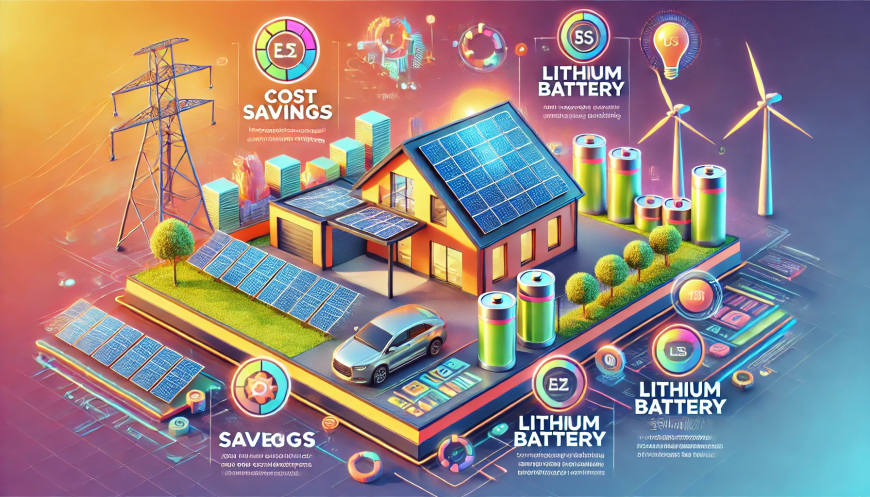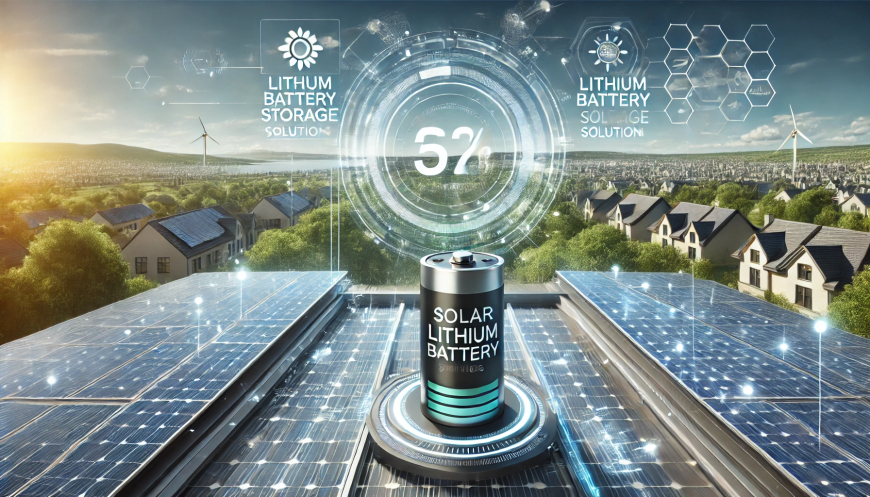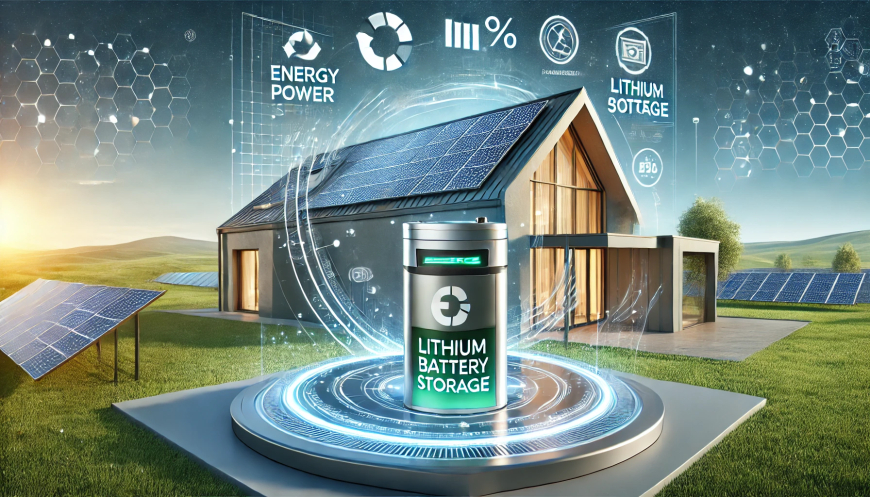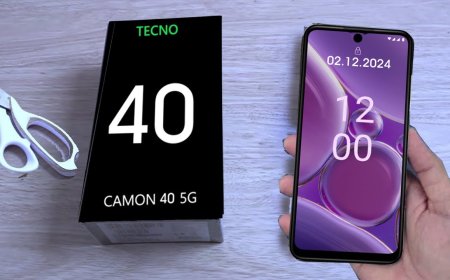🌞 Unlock 10 Years of Massive Savings: How Solar Energy and Lithium Power Can Cut Your Costs and Transform Your Future! 🚀🔋🌿
Unlock lasting savings with solar energy! Learn how lithium batteries and solar panels can drastically reduce your energy costs, ensure energy independence, and help the environment—all for the next decade. Calculate your solar needs today!
Harnessing Solar Power: A Path to Sustainable Energy and Cost Savings
Introduction
In an era where environmental sustainability and economic prudence are paramount, harnessing solar energy emerges as a compelling solution. Transitioning to solar power not only contributes to environmental conservation but also offers significant financial benefits over time. This comprehensive guide delves into the myriad advantages of solar energy, the role of lithium batteries in enhancing solar systems, and provides insights into calculating your solar requirements for a sustainable future.
The Rising Importance of Solar Energy
Environmental Impact
Solar energy is a clean, renewable resource that significantly reduces greenhouse gas emissions. Unlike fossil fuels, solar power generation does not release harmful pollutants into the atmosphere, thereby mitigating climate change and promoting cleaner air quality.
Economic Benefits
Investing in solar energy can lead to substantial cost savings on electricity bills. Over a span of 10 years, homeowners and businesses can recoup their initial investment and continue to enjoy reduced energy costs, making solar power a financially sound decision.

Understanding Solar Panels
What Are Solar Panels?
Solar panels, or photovoltaic (PV) panels, convert sunlight into electricity. They consist of semiconductor materials, typically silicon, that absorb photons from sunlight, releasing electrons and generating an electric current.
Types of Solar Panels
-
Monocrystalline Solar Panels: Made from single-crystal silicon, these panels are known for high efficiency and longevity but come at a higher cost.
-
Polycrystalline Solar Panels: Composed of multiple silicon crystals, they are more affordable but slightly less efficient than monocrystalline panels.
-
Thin-Film Solar Panels: These are lightweight and flexible, suitable for specific applications, though they generally offer lower efficiency.
Advantages of Solar Panels
-
Renewable Energy Source: Solar energy is abundant and inexhaustible, providing a sustainable alternative to finite fossil fuels.
-
Reduced Electricity Bills: By generating your own electricity, you can significantly lower your utility expenses.
-
Low Operating Costs: Solar panels require minimal maintenance, leading to cost savings over their lifespan.
-
Energy Independence: Utilizing solar power reduces dependence on external energy providers, enhancing energy security.
The Role of Lithium Batteries in Solar Systems
What Are Lithium Batteries?
Lithium batteries are rechargeable energy storage devices known for high energy density, efficiency, and long lifespan. In solar systems, they store excess energy generated during daylight for use during periods without sunlight.
Advantages of Lithium Batteries
-
High Energy Density: They can store more energy in a compact size, making them efficient for space-constrained installations.
-
Long Lifespan: Lithium batteries have a longer cycle life compared to other battery types, reducing the frequency of replacements.
-
Efficiency: They offer high charge and discharge efficiency, ensuring optimal utilization of stored energy.
-
Low Maintenance: Unlike some battery types, lithium batteries require minimal upkeep, enhancing convenience for users.
Calculating Your Solar Requirements
To determine the appropriate solar setup for your needs, consider the following steps:
-
Assess Energy Consumption: Calculate your average daily energy usage in kilowatt-hours (kWh) by reviewing electricity bills or using energy monitoring tools.
-
Evaluate Sunlight Availability: Determine the average peak sunlight hours in your location, as this influences the energy your solar panels can generate.
-
System Sizing:
- Solar Panels: Divide your daily energy consumption by the peak sunlight hours to estimate the required solar panel capacity.
- Inverter: Choose an inverter that matches or slightly exceeds your solar panel capacity to efficiently convert DC to AC power.
- Battery Storage: If opting for energy storage, calculate the battery capacity needed to cover your energy usage during periods without sunlight.
-
Consult Professionals: Engage with certified solar installers to conduct a site assessment and provide tailored recommendations based on your specific circumstances.
Conclusion
Embracing solar energy presents a viable pathway to environmental sustainability and financial savings. By understanding the benefits of solar panels and lithium batteries, and accurately calculating your solar requirements, you can make informed decisions that align with both ecological and economic objectives. Transitioning to solar power not only contributes to a greener planet but also empowers you with energy independence and long-term cost reductions.
For a personalized assessment of your solar needs, visit our Solar Calculator to embark on your journey toward sustainable energy solutions.
What's Your Reaction?
 Like
0
Like
0
 Dislike
0
Dislike
0
 Love
0
Love
0
 Funny
0
Funny
0
 Angry
0
Angry
0
 Sad
0
Sad
0
 Wow
0
Wow
0






























